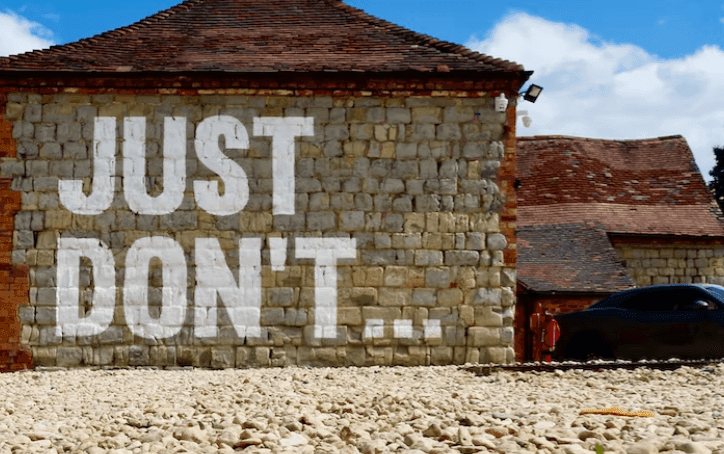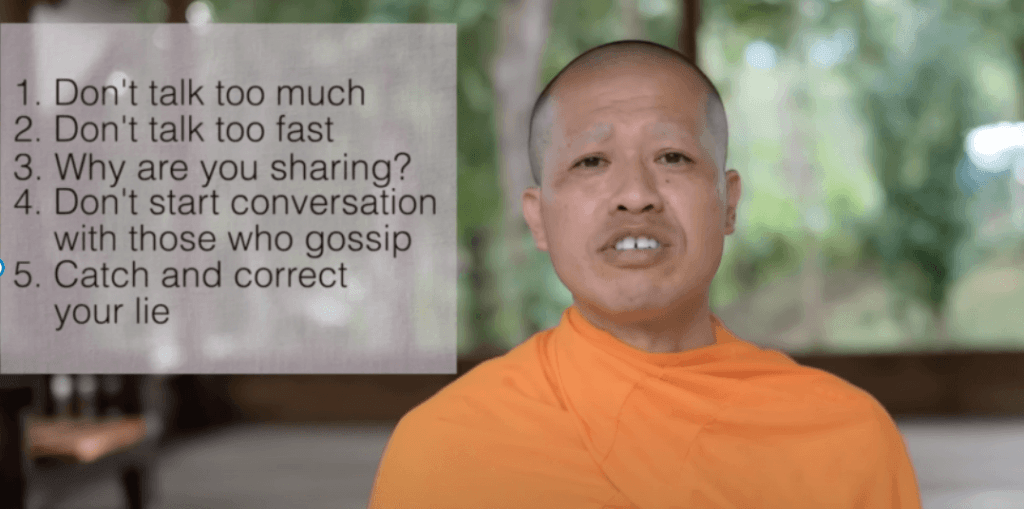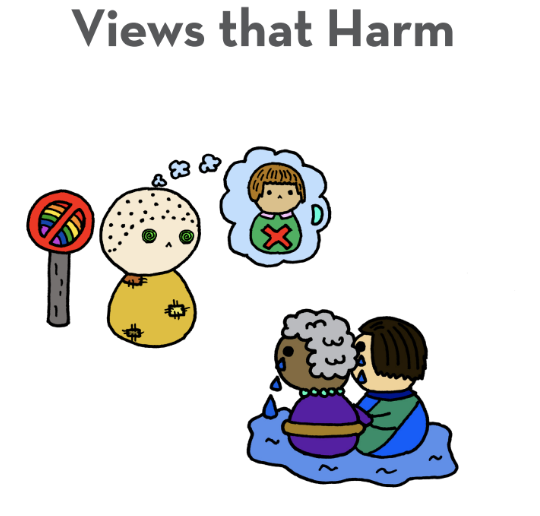
Ep 57: From Dog Shit To Amitabha ft. Venerable Sumangala and Soon
Summary
In part 2 of our Handful of Leaves interview with Venerable Sumangala, she offers insights into applying Dhamma in leadership and daily interactions. Venerable Sumangala emphasises the power of right speech, the importance of understanding egos in decision-making, and practical ways to embed spiritual practice into busy modern life. The conversation reveals how ethical living and mindfulness can harmonize with professional success and personal well-being.
About the Speaker
Venerable Sumaṅgalā Therī is the Abbess of Ariya Vihara Buddhist Society and is an advisor of Gotami Vihara Society in Malaysia. She is one of the recipients of the 23rd Anniversary Outstanding Women Awards (OWBA) 2024, in honour of the United Nations International Women’s Day.
She holds a B.A. in Psychology and in 1999, she completed her M.A. in Industrial and Organizational Psychology, both from Universiti Kebangsaan Malaysia. Furthering her academic and spiritual education, Ven. Sumaṅgalā Therī obtained an M.A. in Philosophy (Buddhism) from the International Buddhist College, Thailand in 2011.
Her formal journey into monastic life began in 2005 when she left the household life to become an Anagarika at the age of 19. Her ordination as a Dasasil (akin to a Sāmaṇerī) took place in November 2008 under the sacred Sri Mahābodhi at Bodhgaya, India. On 21 June 2015, she took her higher ordination under the guidance of preceptor Ven. B. Sri Saranankara Nāyaka Mahāthera – the Chief Judiciary Monk of Malaysia, and bhikkhuni preceptor-teacher Ayya Santinī Mahātherī of Indonesia.
In 2015, she pioneered the formation and registration of Ariya Vihara, Malaysia’s first Theravāda Bhikkhunī Nunnery and Dhamma Training Centre. In 2019, she received a government allocated land for the building of the project with construction to commence in the first half of 2025.
Key Takeaways
The Power of Right Speech
Mindful communication isn’t just a spiritual ideal—it’s a practical skill that can de-escalate tension, build trust, and create harmony, especially in workplaces where misunderstandings and egos often clash.
Ego Awareness Enables Better Leadership
Recognising the role of ego in ourselves and others allows us to navigate difficult decisions with compassion and clarity, fostering a more inclusive and balanced approach to teamwork and leadership.
Spiritual Practice Can Fit Into Everyday Life
You don’t need hours of meditation to live mindfully. Short moments of awareness—like mindful breathing, ethical choices, or chanting on your commute—can ground you and enhance well-being even on the busiest days.
Transcript
Full Transcript
[00:00:00] Venerable Sumangala: You dress so nicely. You make up so beautifully. But the moment you utter this word, all your makeup, all melt.
[00:00:11] Cheryl: Welcome to the Handful of Leaves podcast.
[00:00:13] Soon: Sometimes the path to success requires making extremely difficult situations that impacts others. How do you apply the Dhamma in everything that we do?
[00:00:23] Cheryl: We will speak to Venerable Sumangala, who is a fully ordained nun of 10 vassas to learn more.
[00:00:30] Soon: Like, you have to make a tough decision on a high visibility project, And there’s a new up and coming potential person that has little experience or there’s someone that has a lot of experience, but maybe is not as engaged as the other person. How do you make such difficult decisions?
[00:00:49] Venerable Sumangala: In our daily life or in a monastic life, we face actually the same thing. People come from all walks of life. And sometimes when we are a bit better than others in knowledge and skill, pride may come in. If we feel that we are indispensable, people will have to rely on us. And therefore like, why would a senior one who has experience become resistant to something that is probably their work. It’s because of their ego. Yeah. And then if you have somebody new, but they’re so eager to do because they also want to show their talent, that hopefully either they get a confirmation or they get promotion quickly. But in managing organization or group of people, human skill is very important. To manage people is the most difficult things to do in life.
[00:01:42] Venerable Sumangala: But if you learn to communicate, to rephrase your word in a more proper way, then we will be able to manage them well. Always advise people if you’re working, look at the company objective. So we based on the objective, then we won’t go wrong because that is how we move according to the objective.
[00:02:02] Venerable Sumangala: So if let’s say the senior, they’re a bit resistant. Maybe they want a bit of like praise or gratitude over their contribution. I think we should convey properly to both parties.
[00:02:14] Venerable Sumangala: Maybe we upgrade them a bit to become mentor or advisor. But then the new team, they can actually also perform and give their suggestion, we may give them a direction and then let them talk about their ideas, their perspective.
[00:02:30] Venerable Sumangala: So then it’s not a personal bias or personal favouritism. When two parties don’t come together, remember, don’t exclude anyone. Bring them together. How we phrase the word to talk to them is very important. So right speech and then encouragement and making them know that we are a team, we are working together to achieve the objective and think that will put down all the suspicion of favouritism or bias or being neglected.
[00:03:03] Soon: What you’re sharing has just confirmed to me is that right livelihood is very possible. The practice actually amplifies performance. Because sometimes what we as lay people, what we always see is spirituality is one thing and then material world is another thing. But what I’m hearing is that it’s possible to actually integrate spirituality into the material world and still do well.
[00:03:26] Soon: Yeah. When we are able to understand other people’s egos, we are also able to understand what their desires are, and we can speak to those desires to actually balance these difficult situations that we are put in.
[00:03:42] Cheryl: Venerable, because you touched on the idea of right speech as well, and I’m just reflecting back from conversations, and from peers and colleagues. Sometimes when someone is at the receiving end of being neglected or unfairly treated, right speech is the first to go. The gossip comes, the complaining comes.
[00:04:06] Cheryl: What would your advice be for people in these situations?
[00:04:10] Venerable Sumangala: We meet with different, different people. And again, people have different ways of communication. But I think in the office environment or in a working environment, even as a youth, I find nowadays we have many, many lingos that may not be so wholesome.
[00:04:29] Venerable Sumangala: For example, let’s say in my working environment I have this particular colleague, when she feels like a bit uneasy about something, she will say the word as hokkien she says “狗屎”, “狗屎“ means dog shit.
[00:04:43] Venerable Sumangala: So actually all these are not wholesome word at all. When I hear that. I just feel a bit uneasy. Why did she go and pick up such a word?
[00:04:50] Venerable Sumangala: But I don’t have the timely occasion to address it. So one day she came to my office and we were talking on something and suddenly this would come out again then that’s where I tell her, so far I see you, you dress so nicely. You make up so beautifully. But the moment you utter this word, all your makeup, all melt.
[00:05:12] Venerable Sumangala: If suddenly you wanna say this word out, I said, maybe you replace that word. You say amituofo, right? And then she also pick up.
[00:05:23] Venerable Sumangala: Yeah. And then after that, whenever we talk and suddenly the mind wants to say something like that, then she would say, ah. Then I would say, 善哉(Sadhu Sadhu) you know, and I find it so nice. And in family sometimes, people get angry, they give excuses to themselves, then they say what? “佛都有火”. What they’re saying is the Buddha also got anger just because they are angry.
[00:05:45] Venerable Sumangala: So I said, I never say this word. When a Buddha become a Buddha, they already don’t have any anger. How can you misrepresent the Buddha and say, the Buddha have anger just because you want to be angry.
[00:05:58] Venerable Sumangala: So I said, that is not correct. We have to be very mindful about our speech because speech can kill, speech can heal. In our modern world, so-called, we want to be “in”, so we all pick up all those unwholesome words unnecessarily. So now we have to recorrect our way of talking.
[00:06:17] Venerable Sumangala: I remember that one time. This new admin manager came. So I thought admin people maybe normally, they’re quite gentle, but to my surprise, because her background is working in a karaoke, they used to speak very strong, very macho and they use all kinds of words. For example, she will mention the word “P-O-K-K-A-I”(扑街). So it is like like wishing you bad, wishing you disasters. Even as a head, as a branch manager, when the time comes, we need to address it. Chinese proverb — to learn good three years, to learn bad three days, but now no need, one button only the bad things will happen already. So it is so much mindfulness that we have to practice and in our daily conversation.
[00:07:02] Cheryl: A lot of the words that we picked up and we express it without thinking sometimes subconsciously increases our greed, hatred and delusion. But because words have the potential to heal, we should pick them very wisely. Thank you so much for all the different sharings that you provided us with and it’s so funny, I think I need to use more amituofo. I would like to leave us with one last question which is, what is the significance of taking refuge in the Triple Gem in a society that values material success?
[00:07:36] Venerable Sumangala: We all are given 24 hours a day. For young people struggling to find time for spiritual practice, remember the word busy in Chinese stems from two words, busy means “heart die”.
[00:07:50] Venerable Sumangala: So if we keep thinking that we are very busy, we have no time, to practice, then we also have to use it in a way that reflecting when we are busy, and we keep saying we are busy, means we use the word the
[00:08:06] Venerable Sumangala: “heart die” (忄+ 亡 = 忙),
[00:08:09] Venerable Sumangala: So you will think again, would you want your heart to die?
[00:08:13] Venerable Sumangala: Because when your heart die, you cannot feel, and that’s where you get into trouble. So in order for us to be more objective and more grounded, we have to put time for balancing between our work life, our family life, and also our spiritual life.
[00:08:30] Venerable Sumangala: In the past, when I was a lay person working, normally lunchtime would be my good time, one hour. So after taking my lunch for about 30 minutes, I like to be alone during my lunch, because whole day I’ll be meeting people, and then after that I would go to my office, just sit on the chair, close my eyes and forget the whole world, just relax, and be aware of the breath, doing nothing, not even controlling the breath and just let be for 10, 15 minutes. You’d be surprised that the body start to rejuvenate back and again, the wakefulness and energy.
[00:09:04] Venerable Sumangala: Secondly, when driving to the office, I normally do chanting in the car so I don’t waste time. So when you walk to the office, then you can exercise walking meditation, just enjoy your walking. So actually in practice, we don’t have any reason why we cannot practice. We can practice anytime, anywhere. But you just need to know how to do it, what to do, and then discipline and make the right effort to do it. So it can be done. We have to prioritise the way our lifestyle accordingly to what is healthy and what brings happiness, what brings wellbeing, and also the freedom in the mind.
[00:09:45] Venerable Sumangala: The Buddha say practice Dana, Sila, Bhavana. Dana, be generous. Be kind. Offer your service. Share with others right? Then second, Sila means practice morality. Morality here means ethical conduct in our life. It’s a principle of life. For example, we do not want or we not wish to be harmed or to be killed. So what should we do?
[00:10:09] Venerable Sumangala: We should not harm and we should not kill. It’s as simple as that. It’s nothing like very religious or far idea about how we can live or what we should do. Like, for example, the five precepts. If we not wish our belongings to be stolen, then we don’t take other people’s thing. It’s as simple as that.
[00:10:30] Venerable Sumangala: And if we want other people to be faithful to us, we don’t conduct sexual misconduct. The trust, the faith is there. And if we do not want people to cheat us and bluff us, then we do not speak falsely. That will cause mistrust.
[00:10:47] Venerable Sumangala: So people will respect us, will give us trust, and therefore because of that, they will associate with us and give us opportunity, let’s say doing business because trustable people will lead to good result. And then the fifth one, to abstain, the principle not to make our mind blur or confused by drinking alcohol or taking drugs.
[00:11:10] Venerable Sumangala: And even now I tell them it is in your pantry. Some people can drink coffee three, four cups a day. That is addiction already. We have to be very careful because we think that that will give us the wakefulness, but actually it will cause harm to the body.
[00:11:24] Soon: It reminds me of a quote by Mark Twain, “many people die at 27 but are buried at 72.”
[00:11:33] Soon: A lot of us, we let life take over us, right? We don’t exercise, we sleep late, we wake up early and our life falls apart and we just get pulled by life in all directions.
[00:11:45] Soon: And I think what I got out of this sharing is that it is not that hard to have a good practice. Just taking a short break taking a few deep breaths. And in summary, if you are wise, it’s easy to be happy. That’s true. Because you better decisions and you are more present with life.
[00:12:05] Cheryl: So we come to the end of this episode. For all our listeners, please subscribe to us on YouTube and Spotify. And we see you in the next episode. May you stay happy and wise. Thank you.
Special thanks to our sponsors:
Buddhist Youth Network, Lim Soon Kiat, Alvin Chan, Tan Key Seng, Soh Hwee Hoon, Geraldine Tay, Venerable You Guang, Wilson Ng, Diga, Joyce, Tan Jia Yee, Joanne, Suñña, Shuo Mei, Arif, Bernice, Wee Teck, Andrew Yam, Kan Rong Hui, Wei Li Quek, Shirley Shen, Ezra, Joanne Chan, Hsien Li Siaw, Gillian Ang, Wang Shiow Mei, Ong Chye Chye, Melvin, Yoke Kuen, Nai Kai Lee, Amelia Toh, Hannah Law
Editor and transcriber of this episode:
Hong Jia Yi, Ang You Shan, Tan Si Jing, Bernice Bay, Cheryl Cheah
Visual and Sound Effects
Anton Thorne, Tan Pei Shan, Ang You Shan













